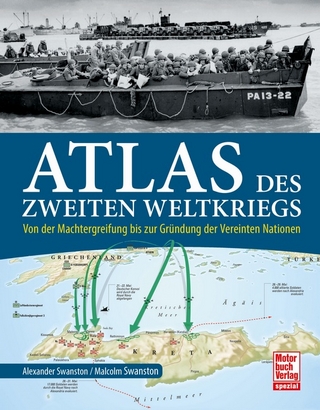
Nuclear Fictions
Violence and the Narration of the Anglosphere
Seiten
2024
Edinburgh University Press (Verlag)
978-1-4744-7572-3 (ISBN)
Edinburgh University Press (Verlag)
978-1-4744-7572-3 (ISBN)
Looks at cultures of deterrence and 'war-ending' weapons and suggests their longer role within the development and stasis of the Anglosphere.
In this book, Michael Gardiner suggests that the conception of the 'war-ending' weapon was tied up with a longer commitment to unified space and singular progress. The mission for total weapons can be seen rising with the highly-technical defensive war of the later nineteenth century, and passing through twentieth century atomic research, then the targeting of the outsides of commercial empire, and the post-war consensus with deterrence as its foundation. The end of the Cold War brought an opportunity to fully naturalise deterrence, but also brought a tacit acceptance of nuclear violence while forms of violence against the individual were rigorously sought out. If the world-unifying role of deterrence has always been undermined by the rise of rival empires, it has also been questioned by critical communities including the consensus-sceptics of the 1950s60s, 1980s90s Nuclear Criticism and readers of 'nuclearism', millennial campaigns for Scottish independence, and twenty-first century descriptions of nuclear colonialism. Recently it has become more obvious that an Anglosphere concept of 'worldly' deterrence was bound to a singular and ultimately nihilistic idea of progress.[bio]Michael Gardiner is Professor in the Department of English and Comparative Literature at the University of Warwick.
In this book, Michael Gardiner suggests that the conception of the 'war-ending' weapon was tied up with a longer commitment to unified space and singular progress. The mission for total weapons can be seen rising with the highly-technical defensive war of the later nineteenth century, and passing through twentieth century atomic research, then the targeting of the outsides of commercial empire, and the post-war consensus with deterrence as its foundation. The end of the Cold War brought an opportunity to fully naturalise deterrence, but also brought a tacit acceptance of nuclear violence while forms of violence against the individual were rigorously sought out. If the world-unifying role of deterrence has always been undermined by the rise of rival empires, it has also been questioned by critical communities including the consensus-sceptics of the 1950s60s, 1980s90s Nuclear Criticism and readers of 'nuclearism', millennial campaigns for Scottish independence, and twenty-first century descriptions of nuclear colonialism. Recently it has become more obvious that an Anglosphere concept of 'worldly' deterrence was bound to a singular and ultimately nihilistic idea of progress.[bio]Michael Gardiner is Professor in the Department of English and Comparative Literature at the University of Warwick.
| Erscheinungsdatum | 12.11.2024 |
|---|---|
| Zusatzinfo | Illustrations |
| Verlagsort | Edinburgh |
| Sprache | englisch |
| Maße | 156 x 234 mm |
| Themenwelt | Literatur ► Romane / Erzählungen |
| Natur / Technik ► Fahrzeuge / Flugzeuge / Schiffe ► Militärfahrzeuge / -flugzeuge / -schiffe | |
| Geisteswissenschaften ► Geschichte ► Geschichtstheorie / Historik | |
| Geschichte ► Teilgebiete der Geschichte ► Militärgeschichte | |
| Geisteswissenschaften ► Sprach- / Literaturwissenschaft ► Anglistik / Amerikanistik | |
| Geisteswissenschaften ► Sprach- / Literaturwissenschaft ► Literaturwissenschaft | |
| Sozialwissenschaften ► Politik / Verwaltung | |
| ISBN-10 | 1-4744-7572-8 / 1474475728 |
| ISBN-13 | 978-1-4744-7572-3 / 9781474475723 |
| Zustand | Neuware |
| Haben Sie eine Frage zum Produkt? |
Mehr entdecken
aus dem Bereich
aus dem Bereich
von der Machtergreifung bis zur Gründung der Vereinten Nationen
Buch | Softcover (2023)
Motorbuch Verlag
24,90 €


